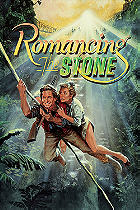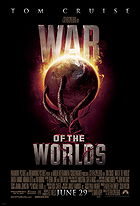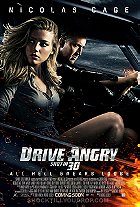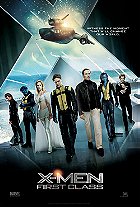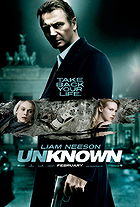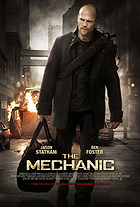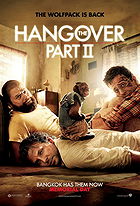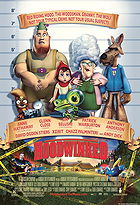Following their parodies of zombie flicks (2004's Shaun of the Dead) and action films/buddy cop movies/murder mysteries (2007's Hot Fuzz), the endearing British comedy duo of Simon Pegg and Nick Frost turned to road movies and sci-fi for 2011's Paul. However, while Shaun and Hot Fuzz were British movies directed by Edgar Wright, American director Greg Mottola replaced the boys' usual collaborator to helm this American-produced comedy. Thankfully, though, these aspects do not dilute the boys' comic genius. In less adroit hands, Paul would've simply been a wacky comedy with relentless profanity, toilet humour and drugs. With Pegg and Frost having written the script, though, Paul is both a satisfying comedy and a valentine to the sci-fi genre. It is not a satire of science fiction or a parody, but a good old-fashioned road trip comedy that's endowed with a Spielbergian concept and loaded with movie references, fun absurdity and R-rated tomfoolery...and it just happens to feature an alien.

A couple of geeky English buddies with big dreams but little gumption to achieve them, artist Graeme (Pegg) and writer Clive (Frost) have travelled to America to attend Comic-Con. Afterwards, the boys embark on an RV tour through the American Southwest to visit all the "classic" UFO hotspots, hoping to expose their geek minds to some extraterrestrial history. No sooner have they hit the road that the pair happen upon Paul (voiced by Rogen), an alien who escaped from American captivity after spending years feeding Hollywood and the military all of his secrets and ideas. The American government wants to harvest Paul's brain, though, prompting Paul to escape in the hope of getting back home. After an awkward meeting, Graeme and Clive agree to hit the road with the sociable pot-smoking alien. Meanwhile, the Men in Black are in hot pursuit to recapture Paul, and the trio becomes a foursome when they kidnap a Christian zealot (Wiig) who initially believes Paul to be a demon.
With Paul, it seems that there isn't a well-worn genre or a premise that Simon Pegg and Nick Frost cannot make good through their witty touch. It's clear these guys are enormous, geeky movie fans, since everything they've written has been built on a foundation of cinematic homage and referencing (see the TV show Spaced in particular). These qualities are very obvious in Paul, as lines from science fiction films like Star Wars, Predator and Aliens appear in the script, along with nods to other well-known sci-fi pictures like E.T., Star Trek and Close Encounters of the Third Kind. Indeed, Paul is pure geek bait - it practically bleeds green. This is heightened by the fact that the film is bookended by scenes taking place at Comic-Con. Heck, Steven Spielberg even agreed to do a voice cameo. And my word, the Spielberg cameo is a great touch.

Paul's humour is of the distinctly British variety despite its American director and setting, which is suitable considering Pegg and Frost scripted the picture. However, while Paul is often a very funny flick, it is not always on the prowl for belly-laughs - most of the highlights are merely cause for loud chuckles or big grins. Yet, this is not a criticism; rather than ladling on thunderous laughs, Paul has an easygoing joviality that works far better. Paul is a genuinely warm comedy, with affable characters embodying sheer humanity and warmth. What's perhaps most remarkable is that the narrative never grows dull or plodding. Most comedies are positively drab in between the belly-laughs, but not Paul - the energy levels never flag. Deep down it lacks the spark of excellence of Hot Fuzz and Shaun of the Dead (perhaps Edgar Wright's exclusion has something to do with this), but it works well enough on its own merits.
Perhaps unsurprisingly, Simon Pegg and Nick Frost are an awesome comedic twosome here. The pair are as amiable as ever, sharing a breezy repartee and an effortless chemistry highlighting their real-life friendship. Admittedly, Pegg and Frost simply play the same type of roles they're frequently associated with, but at least they're actually good at these roles and have personality. In a nod to Spaced, Shaun of the Dead and Hot Fuzz, there's an ongoing joke about how everyone who meets the boys mistakes them for gay lovers, leading to a number of amusing moments.

Fortunately, Pegg and Frost are not the only talented members of the cast - Paul is one of those rare comedies brimming with talent, and each cast member has a moment to shine. Voiced pitch-perfectly by Seth Rogen (he was born to give personality to CG creations), the titular Paul is a digital creation, yet he effortlessly fits in and it's easy to forget his CGI origins thanks to realistic animation and amusing laugh lines. Alongside him, Jason Bateman is as funny and watchable as ever as Agent Zoil, while Bill Hader and Joe Lo Truglio score a tonne of laughs as a bumbling pair of government agents. The cream of the crop, though, is Kristen Wiig as Ruth. She's excellent not just because her character has the most interesting arc, but because she is bloody hilarious; a scene-stealer from start to finish. Meanwhile, Sigourney Weaver also shows her comic instincts in her minor role here, and Blythe Danner is predictably good as the first person Paul met on Earth. Rounding out the cast is John Carroll Lynch playing Ruth's religious nutcase of a father.
In the running for the best comedy of 2011, Paul is a close encounter with the comic brilliance of Simon Pegg and Nick Frost that tickled both my funny bone and my geek bone, and it possesses infinite replay value. While it's not as funny as the duo's previous films, this is a flick with heart and a three-dimensional roster of characters.
8.1/10
 Login
Login
 Home
Home 183 Lists
183 Lists 1671 Reviews
1671 Reviews Collections
Collections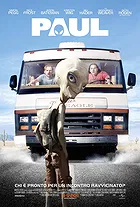
 0 comments,
0 comments, 